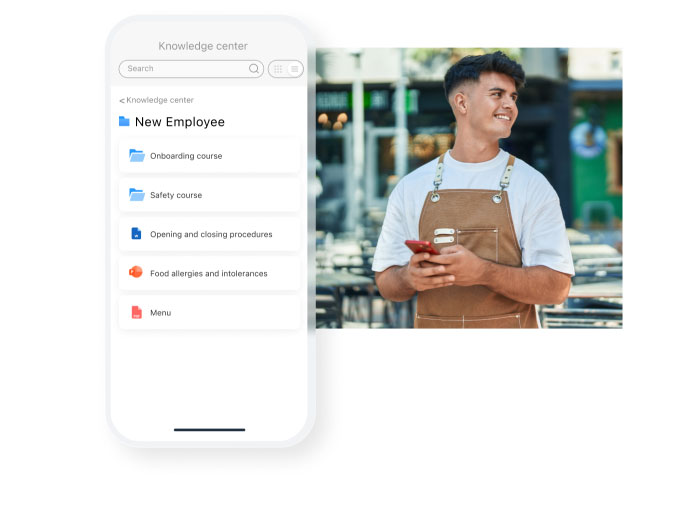Under the UK’s licensing laws, there are harsh penalties for selling alcohol to minors. In this article, we look at how you can use the Challenge 25 policy to reduce the risk of underage sales and ensure compliance with licensing laws.
If you sell or serve alcohol in the course of running your business, responsible service is a priority, not an option. This includes preventing the sale of alcohol to minors.
Failing to prioritise this puts you at risk of breaking the law and facing significant fines or even the revocation of your licence.
Despite the law, there will always be people who try to do the wrong thing, so it’s important to know how to reduce the risk of underage alcohol sales and protect your business.
In this article, we explain the licensing laws in the United Kingdom concerning minors, how the Challenge 25 policy can help you comply with these licensing laws, and the steps you can take to implement Challenge 25 in your business.
Key Takeaways
- Challenge 25 is a strategy designed to help reduce the sale of alcohol to people under 18 years of age in the UK.
- Businesses that use Challenge 25 require customers who look under 25 years of age to show valid photo identification when buying alcohol.
- The strategy also involves conducting regular employee training, displaying posters to inform customers about Challenge 25, and keeping records of attempts to buy alcohol without a valid ID.
- Implementing Challenge 25 in your business helps reduce the risk of selling alcohol to minors, protecting you from possible fines and prosecution, as well as the suspension or revocation of your licence.
What Is Challenge 25?
Challenge 25 is a policy under which anyone buying alcohol in the UK who looks under 25 years old is asked for ID to confirm their age. It helps to prevent the sale of alcohol to underage people and to reduce underage drinking in the community.
It’s illegal to sell alcohol to anyone under 18 in the UK. Challenge 25 helps licence holders—like bars, pubs, supermarkets, and off-licences—comply with this rule. Rather than employees guessing a customer’s age, they can ask for the ID of anyone who looks under 25 as a matter of policy. This builds in a margin of error to ensure they don’t supply alcohol to someone under 18.
Introduced in 2006 by the Retail of Alcohol Standards Group, Challenge 25 uses a combination of training, posters, and record-keeping to prevent underage alcohol sales. The policy also encourages management to support staff who require ID and refuse a sale.
Challenge 25 is mandatory in Scotland but voluntary in England, Wales, and Nothern Ireland. However, it’s often a condition of a premises licence, and many licence holders adopt it by choice as a matter of best practice.
Challenge 25 is also referred to as the Think 25 policy by several major UK retailers, including Tesco and Sainsbury’s.
Laws on the Sale of Alcohol in the UK
The UK’s Licensing Act 2003 makes it illegal for anyone under the age of 18 to buy—or try to buy—alcohol. Conversely, alcohol retailers and licensed premises are strictly prohibited from selling alcohol to underage customers.
It’s also illegal for an adult to buy alcohol for a minor, except in limited situations. For example, an adult can buy a beer, wine, or cider for a 16- or 17-year-old to have with a meal while accompanied by an adult.
Under the Licensing Act, licence holders must have a proof of age policy requiring people who appear to be under the age of 18 (as a minimum) to provide ID when buying alcohol.
Acceptable forms of ID include passports, driver’s licences, proof of age cards, and military identification. The IDs must include the holder’s photograph, date of birth, and a holographic mark or ultraviolet feature.
Penalties for underage sales
Councils, licensing authorities, and police can conduct random checks on premises, sending in underage customers to try to buy alcohol. They can impose penalties on both individual employees and premise license holders for underage sales.
If you sell alcohol to minors, you can face a range of penalties.
For a single instance of selling alcohol to a minor, you may be issued an on-the-spot penalty notice (i.e., a fine). Alternatively, you can be prosecuted by the relevant licensing authority, which can lead to fines of up to £5,000.
The persistent sale of alcohol to a minor (on 2 or more occasions within 3 months) can result in a closure notice as an alternative to prosecution. If prosecuted, the charge attracts fines of up to £20,000 and a licence suspension of up to 3 months.
Regardless of whether you’re prosecuted, licensing authorities may also review your licence following an underage sale. This can result in the licensing authority imposing restrictions on your licence or suspending or revoking the licence.
Why Use Challenge 25?
Although not always required by law, many licence holders use Challenge 25 to help them comply with licensing laws.
By law, you’re required to have a proof of age policy that involves checking the ID of customers who look under 18. But Challenge 25 expands the scope of this to help prevent the sale of alcohol to minors.
By routinely checking the ID of any who looks under 25, you can reduce the risk of unintentionally selling alcohol to minors. Challenge 25 is the best practice approach to developing a proof of age policy.
The penalties for underage alcohol sales can be harsh and can restrict—or even take away—your ability to sell alcohol. Challenge 25 helps you stay compliant to avoid facing these penalties.
If you’re prosecuted for selling alcohol to a minor, adopting Challenge 25 may provide you with a defence. It may help you show that you believe the customer was over 18 and that you took all reasonable steps to verify their age.
If you’re a premises licence holder, implementing Challenge 25 may supports the argument that you exercised all due diligence to avoid underage sales occurring.
This Might Interest You
Compliance in the workplace is key to providing a safe environment for your employees and customers. It also protects your business from penalties as a result of violating any rules or regulations. Learn more about how you can foster compliance across your organization.
How to Implement Challenge 25 and Avoid Underage Sales
Put it in writing
It’s essential to put your proof of age policy in writing and share it with your employees. This ensures your staff members are aware of the policy and understand how to implement it in their work.
Clearly set out the details of your proof of age policy. Include when employees are expected to check customer IDs, what forms of ID are accepted, and the steps staff should take if a customer complains about the policy or refuses to provide their ID.
Make the policy available via your employee handbook or intranet so that your staff can refer to it as needed.
Conduct regular staff training
It’s important to provide your staff with responsible service of alcohol training, including procedures under Challenge 25. Delivering these training sessions regularly reminds employees of their responsibilities when serving alcohol and reduces the risk of underage sales.
Challenge 25 training guides employees on topics like when to ask for an ID, what forms of ID to accept, and how to spot a fake ID.

Pro Tip
With dedicated employee training software like Connecteam, you can quickly create and deliver bite-sized training videos to update your employees about important policy changes. Connecteam tracks exactly who has taken the training and keeps detailed records to ensure your business remains compliant.
Get started with Connecteam for free today!
It’s also a good idea to cover conflict resolution skills in your training so staff know how to respond to customers who react negatively to a request for ID.
Independent training providers can deliver specific Challenge 25 training. Alternatively, you can develop your own training programme tailored to the needs of your business and employees.
In any case, store training records so you can easily see when employees need to refresh their knowledge about Challenge 25.
Advertise your policy
At your premises, put up posters to inform your customers about Challenge 25 and what types of IDs are accepted. These can be displayed in locations like bathrooms and behind the bar or till.
Doing this helps your employees enforce the policy by giving them something to refer to if a customer challenges their request for ID.
Posters also put customers on notice that you will check their IDs, discouraging underage people from trying to buy alcohol in the first place.
Pro Tip
The Retail of Alcohol Standards Group provides free downloadable Challenge 25 posters and badges for licensed premises to print and display.
Keep a record
It’s also useful to keep a record of any attempts to buy alcohol without an ID, noting:
- The date and time of the attempt
- A description of the product
- A brief description of the person
- Whether they were asked for ID
- Any comments
- The signature of the staff member who served them
While not compulsory, this is a good way to demonstrate that you are applying your policy. This information may also be useful for police or licencing authorities to review if necessary.
Test purchasing
Several organisations offer age verification test purchasing. Similar to a “mystery shopper” programme, these organisations send 18- and 19-year-olds to your business to buy alcohol to check whether your staff members are applying the Challenge 25 policy.
Rather than using test purchasing as a way to “catch” employees, it’s useful for identifying knowledge gaps you can address with the appropriate training.
Use Connecteam to Support Compliance
Any UK business that serves or sells alcohol should adopt Challenge 25. While not always required by law, Challenge 25 helps reduce the risk of unintentionally selling alcohol to minors by checking the ID of anyone who looks under 25.
A large focus of Challenge 25 is training your employees. Using Connecteam to deliver and record your Challenge 25 training makes it easy to maintain compliance and protect your business from hefty fines or other penalties for underage sales.
With Connecteam, you can create custom courses that employees can complete in their own time, from anywhere. Plus, you’re able to easily store training records in one central location and update courses and materials as needed.

Connecteam also helps you centrally store and manage documents, including records of any attempts by customers to buy alcohol without a valid ID. It offers a document management feature employees can use to upload their required documents, as well as a knowledge base for any important company information—like your proof of age policy, Challenge 25 training guide, and Challenge 25 posters.
Connecteam enables you to set expiration dates on documents and will send you a notification when a document is about to expire. This way, you can quickly renew it to ensure you remain compliant with laws and regulations.
You’re even able to create an employee handbook that staff members can access straight from their mobile devices.
With a free Small Business Plan and affordable plans for larger businesses, Connecteam is a great way to deliver training and manage your business records.
Get started with Connecteam for free today!
Challenge 25 Questions and Answers
Is Challenge 25 a legal requirement?
Challenge 25, also referred to as the Think 25 policy by many UK retailers, is a legal requirement in Scotland. Alcohol retailers must check the ID of anyone who looks 25 and attempts to buy alcohol.
In England and Wales, Challenge 25 is a voluntary policy that licence holders can use to reduce the risk of underage alcohol sales.
Is Challenge 25 just for alcohol?
Challenge 25 was developed specifically to reduce the sale of alcohol to minors. However, some retailers also use the policy in relation to other restricted products like tobacco, vaping products, lottery tickets, knives, and video games.
What percentage of people support the Challenge 25 scheme?
According to the Wine and Spirit Trade Association, 79% of survey respondents either strongly support or tend to support retailers using the Challenge 25 policy.
Disclaimer
The information presented on this website about Challenge 25 is intended to be an overview for informational purposes only. It is not intended as legal advice. Laws and regulations regularly change and may vary depending on individual circumstances. While we have made every effort to ensure the information provided is up-to-date and reliable, we cannot guarantee its completeness, accuracy, or applicability to your specific situation. Therefore, we strongly recommend that readers seek guidance from their legal department or a qualified lawyer to ensure compliance with applicable laws and regulations. Please note that we cannot be held liable for any actions taken or not taken based on the information presented on this website.




